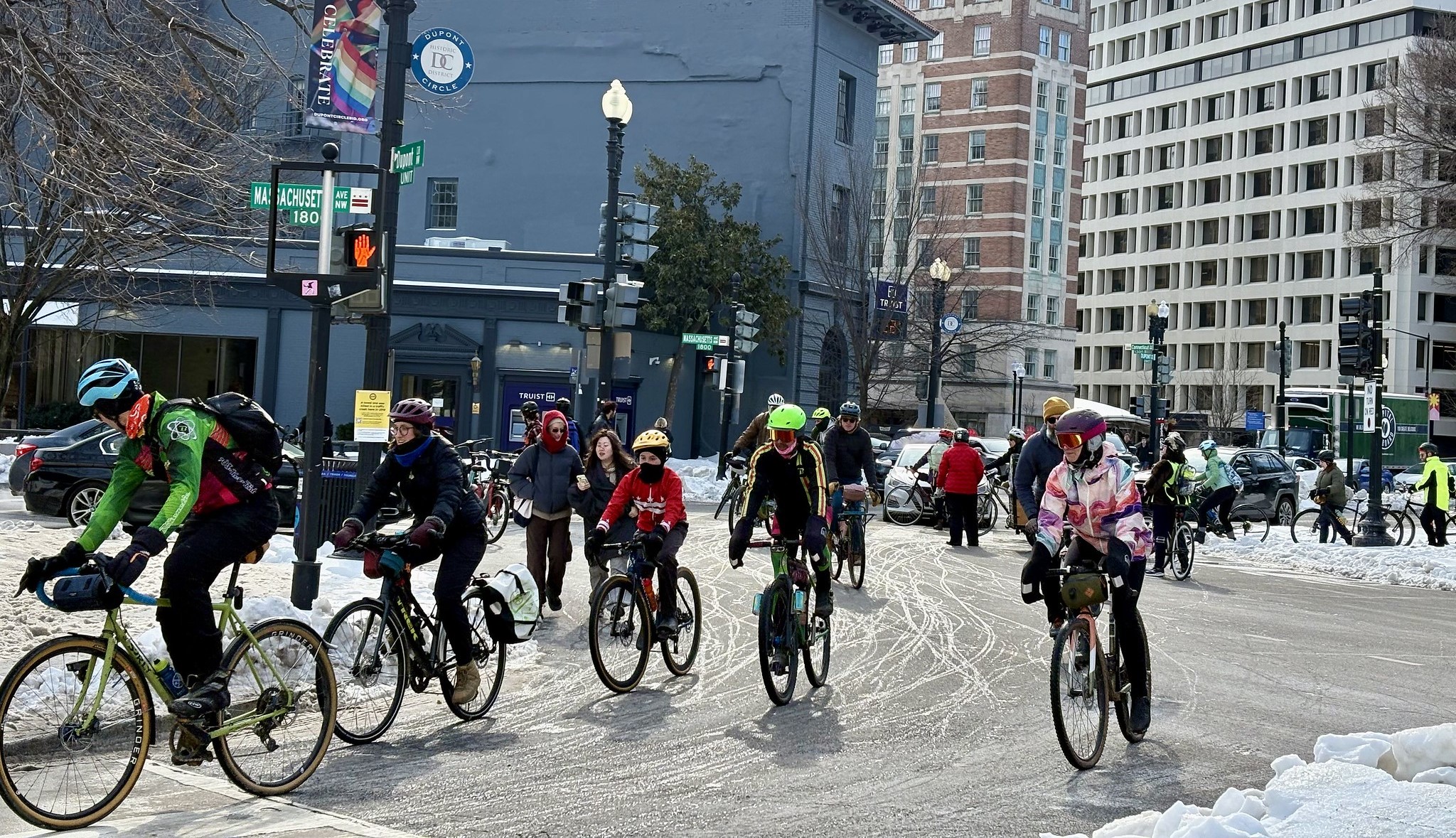A fix-it-first policy for roads. More support for livability programs. Additional transit investment. Competitive infrastructure grants. In his new six-year, $556 billion surface transportation proposal, President Obama is hitting all the right notes with transportation reform advocates.
As part of his 2012 budget proposal -- released yesterday -- the President put forward a plan that would double investment in transit, give a boost to bicycle and pedestrian infrastructure, and generally chip away at policies that have led to billions going to waste on highways to nowhere.
Across the Network, the plan is getting rave reviews.
Transportation for America's James Corless released a statement saying:
The Administration’s visionary reforms recognize where we are at this moment in history: Having built the world’s best highway and bridge network, we have to focus on preserving those aging assets while we build the missing pieces of a modern system that allows people and goods to get where they’re going cheaply, conveniently and safely.
Yonah Freemark at the Transport Politic concurred:
The reforms announced by the Department of Transportation indicate how the Administration wants the Congress to move forward on a funding reauthorization bill, and the measures proposed make sense. The Highway Trust Fund would transform into the Transportation Trust Fund, providing new, specified accounts for highways, transit, high-speed rail, and an infrastructure bank (currently there are only highway and transit accounts). Transit agencies would be allowed to use some of their federal funding for operations, something that is not allowed under current federal guidelines. And the various grant-providing programs currently offered by Washington would be simplified. These would all be meaningful, useful improvements over the existing situation.
The NRDC's Deron Lovaas applauded the administration for thinking big:
This is a big, big budget proposal. And it should be. Transportation is the second biggest expense for most Americans, ahead of food and health care. The Administration is swinging for the fences on this one, and they’re going to get pushback from some conservatives. But transportation is one issue where both parties have a history of working together, and it’s an issue where the public expects bipartisan cooperation.
As Tanya noted yesterday, and as many bloggers alluded to, the big questions remaining are how the President's proposal will be received in the Republican House, where cutting discretionary spending is all the rage, and in the Senate, which still rests in Democratic hands. Across the Network, bloggers had mixed opinions about the chances for bipartian cooperation on the critical issue of the nation's infrastructure. Corless of T4A noted that the American public has indicated wide support for increased infrastructure spending. He added: "The task now is for the President and Congress to engage in the bipartisan problem-solving Americans expect in order to find ways to pay for the jobs-sustaining infrastructure they deserve."






